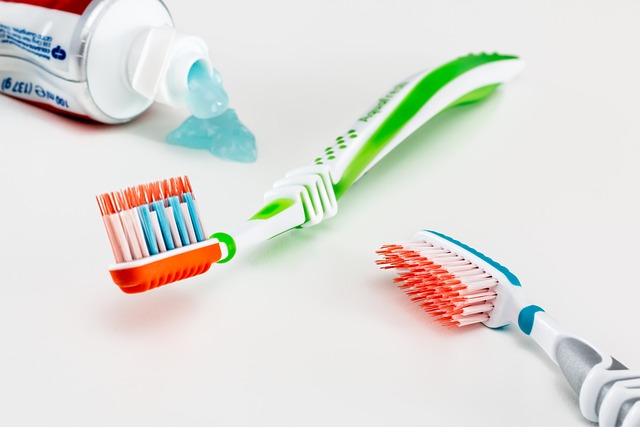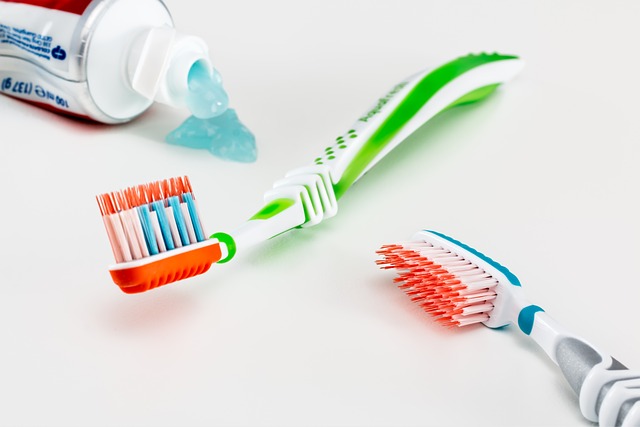Ease the Healing Process: Understanding the Duration of Post-Tooth Extraction Gum Soreness
Welcome to our informative article on how to ease the healing process after a tooth extraction by understanding the duration of post-extraction gum soreness. We understand that dental procedures can be daunting, and the discomfort that follows can sometimes be a cause for concern. But fear not, because we’re here to guide you through the journey of recovery with a friendly approach. In this article, we will delve into the common questions surrounding post-tooth extraction gum soreness, such as how long it lasts, what factors influence the healing period, and most importantly, effective ways to alleviate the discomfort. So, sit back, relax, and let’s embark on this informative adventure together!
1. Introduction: Why Does Gum Soreness Occur After Tooth Extraction?
Gum soreness is a common occurrence after a tooth extraction, and understanding why it happens can help alleviate any concerns or discomfort you may be experiencing.
When a tooth is extracted, it leaves an empty socket in the gums where the root used to be. This socket needs time to heal, and during the healing process, you may experience soreness or discomfort. Here are a few reasons why gum soreness can occur after a tooth extraction:
- Inflammation: The extraction process can cause inflammation in the surrounding gum tissue, leading to soreness.
- Exposed Nerves: The extraction may expose nerves in the socket, which can result in sensitivity and soreness.
- Wound Healing: The gums undergo a healing process after a tooth extraction, which can cause temporary soreness.
- Infection: In some cases, an infection may develop in the socket, leading to increased gum soreness. It’s important to follow proper post-operative care instructions to minimize the risk of infection.
While gum soreness after a tooth extraction is normal, it’s essential to monitor your symptoms and report any excessive pain or prolonged discomfort to your dentist. They can provide appropriate guidance to ensure that your healing process goes smoothly and alleviate any concerns you may have.

2. The Normal Healing Process: What to Expect After a Tooth Extraction
After a tooth extraction, it is important to understand the normal healing process to ensure a smooth recovery. Here’s what you can expect:
1. Bleeding: It is normal to experience some bleeding for the first 24 hours after the extraction. To control it, place a clean gauze pad over the extraction site and apply gentle pressure for about 30 minutes. Avoid rinsing or spitting vigorously, as it may dislodge the blood clot and prolong the bleeding.
2. Swelling and discomfort: Swelling and mild discomfort are common after a tooth extraction. To reduce swelling, apply an ice pack to the affected area for 10 minutes at a time. Over-the-counter pain medication like ibuprofen can help ease any discomfort. Remember to follow the recommended dosage and consult your dentist if the pain persists.

3. Understanding the Duration: How Long Will Gum Soreness Last?
Experiencing gum soreness can be uncomfortable and even painful, but fortunately, it is usually a temporary issue that resolves on its own. The duration of gum soreness can vary depending on a few factors, so let’s break it down to give you a better understanding:
- Cause: The duration of gum soreness can be influenced by its underlying cause. If the soreness is due to a simple irritation from harsh brushing or eating sharp foods, it should subside within a few days as long as you provide proper care and avoid further irritation. However, if gum soreness is caused by a more serious issue like gum disease or an infection, it may take longer to heal and require professional treatment.
- Oral hygiene: Maintaining good oral hygiene plays a significant role in how long gum soreness lasts. By brushing your teeth gently twice a day, flossing daily, and using an antiseptic mouthwash, you can promote faster healing and reduce the duration of gum soreness. Remember to use a soft-bristled toothbrush and avoid aggressive brushing, as this can further irritate the gums and prolong the soreness.
- Individual differences: Every individual may respond differently to gum soreness. While some people may experience quick relief within a few days, others may take a bit longer for the soreness to subside. If you have any concerns or the soreness persists beyond a week, it is always a good idea to consult your dentist for an evaluation and professional advice.
Remember, gum soreness is usually temporary and resolves on its own with proper care and oral hygiene. By understanding the factors that contribute to its duration, you can take the necessary steps to alleviate the discomfort and promote a speedy recovery.

4. Factors Affecting Healing Time: What Can Influence the Duration of Gum Soreness?
When it comes to healing time for gum soreness, several factors can influence how long it takes for your gums to feel better. Understanding these factors can help manage your expectations and take steps to promote faster healing. Here are some key factors that can affect the duration of gum soreness:
- Oral Care Routine: Keeping a consistent and proper oral care routine is essential for gum health. Regular brushing, flossing, and using an antiseptic mouthwash can help prevent and reduce gum soreness.
- Underlying Dental Issues: Certain dental conditions, such as gum disease or tooth infections, can contribute to gum soreness. Treating these underlying issues will play a role in the healing time for your gums.
- Oral Habits: Habits like smoking, biting your nails, or grinding your teeth can put additional strain on your gums, slowing down the healing process. Identifying and addressing these habits can help promote faster healing.
Furthermore, factors like overall health, the extent of the soreness, and individual healing rates can also play a role in determining how long it takes for your gums to feel better. Remember to consult with your dentist for a proper diagnosis and personalized advice to help speed up the healing process. Taking care of your gum health not only promotes comfort but also ensures a healthy and happy smile.

5. Tips for Easing Discomfort: Simple Ways to Alleviate Post-Extraction Gum Soreness
If you’ve recently had a tooth extraction, you may be experiencing some gum soreness or discomfort. Fortunately, there are several simple ways to alleviate this discomfort and promote faster healing. Here are some tips to help you ease post-extraction gum soreness:
- Apply a cold compress: Placing a cold compress on the outside of your cheek near the extraction site can help reduce swelling and alleviate soreness. You can use a bag of frozen peas or wrap some ice cubes in a clean cloth and apply it for about 15 minutes at a time.
- Take over-the-counter pain relievers: Non-prescription pain relievers like ibuprofen or acetaminophen can provide relief from gum soreness. Follow the recommended dosage instructions and consult with your dentist if you have any concerns or if the pain persists.
- Gently rinse with warm saltwater: Mix half a teaspoon of salt with 8 ounces of warm water. Rinse your mouth gently with this solution several times a day, especially after meals, to reduce soreness and keep the extraction site clean.
Remember, everyone’s healing process is unique, so it’s important to listen to your body and adjust these tips accordingly. If you still experience severe discomfort or notice any signs of infection, such as fever or pus, contact your dentist immediately for further guidance and professional intervention. Taking care of your gums after an extraction is essential for a smooth recovery, so be sure to follow these simple tips to alleviate soreness and promote healing.
6. When to Seek Help: Signs that Indicate Something is Wrong with Your Healing Process
Recovering from an injury or surgery can be a challenging and sometimes frustrating process. While most healing processes will have their ups and downs, it’s important to be aware of certain signs that may indicate something is not going according to plan. If you experience any of the following indications, it’s recommended that you seek medical assistance to ensure your healing process stays on track:
- Increasing pain: It’s normal to experience some discomfort during the healing process, but if your pain level starts to intensify rather than diminish over time, it may be a sign of an underlying issue. Trust your instincts and consult with your healthcare provider if the pain becomes unbearable or if pain medications are ineffective.
- Severe swelling or inflammation: While mild swelling is expected after an injury or surgery, excessive or persistent swelling can indicate an infection or a deeper problem. If the swelling doesn’t subside with rest, elevation, or cold compresses, it’s essential to seek medical advice to prevent any potential complications.
- Difficulty in movement: If you find it increasingly challenging to perform basic movements or activities that were previously manageable, it could be a sign that your healing process is being hindered. Whether it’s stiffness, weakness, or restricted range of motion, it’s wise to consult your healthcare provider for an evaluation and appropriate guidance.
Remember, each person’s healing journey is unique, and what may be unusual for one individual could be part of the normal healing process for another. However, it’s always better to err on the side of caution and reach out to your healthcare professional if you have any concerns. They have the expertise to assess your condition and provide the necessary support to ensure you have a smooth recovery.
7. Managing Expectations: Patience and Proper Care for a Smooth Recovery
Managing expectations is an essential part of ensuring a smooth recovery after any procedure. It’s important to be patient and take proper care during this time. By following these tips, you can make your recovery as comfortable and efficient as possible:
- Understand the recovery process: Every procedure requires a different recovery timeline. Consult your healthcare professional or surgeon to get a clear understanding of what to expect during each stage of your recovery. This will help you mentally prepare and avoid unnecessary stress.
- Follow post-operative instructions: Your surgeon will provide you with a set of guidelines to follow after your procedure. These instructions are specific to your case and should be followed diligently. They may include details on wound care, medications, physical activity restrictions, and dietary changes. Adhering to these instructions greatly enhances your chances of a smooth and successful recovery.
- Don’t rush the healing process: Patience is key during recovery. Remember that your body needs time to heal properly. Avoid exerting yourself too soon, even if you feel better before the expected recovery time. Pushing yourself too hard too soon may lead to complications or setbacks that can prolong your recovery time.
With proper expectation management and a commitment to self-care, you can ensure a more pleasant and successful recovery journey. By allowing yourself the time and attention you need, you’ll be back on your feet in no time.
8. Promoting Healing: Foods and Habits that Can Aid in the Recovery from Tooth Extraction
In order to promote healing and aid in recovery after a tooth extraction, it is essential to consume certain foods and develop healthy habits. These practices can help speed up the healing process and reduce discomfort. Here are some foods and habits that can aid in your recovery:
- Soft Foods: Choose softer foods that are easy to chew and swallow to prevent any strain on the extraction site. Opt for options such as yogurt, mashed potatoes, smoothies, and soup. Avoid foods that are hard, crunchy, or require excessive chewing.
- Vitamin-Rich Foods: Include plenty of fruits and vegetables in your diet, as they are rich in essential vitamins and minerals. Vitamin C is particularly beneficial for the healing process, so focus on foods like oranges, strawberries, broccoli, and bell peppers.
- Hydration: Stay hydrated by drinking plenty of water. Sipping water throughout the day not only helps to reduce discomfort but also keeps your mouth clean and aids in the healing process.
In addition to the foods you consume, adopting certain habits can also contribute to a smooth recovery. Here are some habits to consider:
- Oral Care: Take extra care of your oral hygiene during the recovery period. Gently brush your teeth twice a day, being careful to avoid the extraction site. Rinse your mouth with a warm saltwater solution after meals to keep the area clean.
- Rest and Relaxation: Allow your body to heal by getting plenty of rest. Avoid strenuous activities and relax as much as possible.
- Avoid Smoking: If you’re a smoker, it is crucial to refrain from smoking for at least 48 hours after the extraction. Smoking can hinder the healing process and increase the risk of complications.
By incorporating these foods and habits into your recovery routine, you can promote healing and ensure a smoother and more comfortable recuperation from your tooth extraction.
9. Common Concerns Addressed: Frequently Asked Questions About Post-Tooth Extraction Gum Soreness
So, you’ve recently had a tooth extraction and now you’re experiencing some gum soreness. Don’t worry, it’s completely normal! Here are some frequently asked questions to help address your concerns:
- Why is my gum sore after a tooth extraction?
Gum soreness after a tooth extraction is a common occurrence. During the extraction, the surrounding gum tissue can become inflamed and tender. This is a natural part of the healing process as your body repairs itself. The soreness should subside gradually over time. - How long will my gum be sore?
The duration of gum soreness can vary from person to person. In most cases, you can expect the soreness to last for about a week or two. However, if your pain persists or worsens after this period, it is best to consult your dentist, as it could be a sign of a potential problem.
Remember, everyone’s healing process is different, so try not to compare your experience to others. If you have any additional concerns or your gum soreness does not improve, don’t hesitate to reach out to your dentist for guidance and support. They are there to ensure your recovery goes smoothly and comfortably!
10. Conclusion: Embracing the Healing Process and Enjoying a Healthy Smile
Embracing the healing process is an essential step towards achieving a healthy smile. Whether you’ve recently undergone a dental procedure or are on your path to oral health recovery, it’s important to give your body the time it needs to heal. Remember, patience and proper care go hand in hand when it comes to experiencing a successful dental journey.
During this healing process, it’s crucial to follow your dentist’s post-operative instructions carefully. These guidelines may include recommendations for pain management, appropriate oral hygiene practices, and a modified diet. By adhering to these instructions, you can minimize discomfort, reduce the risk of complications, and promote speedy healing.
Additionally, making small lifestyle changes can greatly contribute to the healing process. Maintain a balanced diet that is rich in nutrients to support the growth of healthy oral tissues. Avoid habits that may hinder the healing, such as smoking or excessive alcohol consumption. Remember, taking care of your overall health will positively impact your dental recovery.
- Practice proper oral hygiene: Regular brushing and flossing, as instructed by your dentist, will help keep your teeth and gums clean, reducing the chance of infection and promoting healing.
- Attend follow-up appointments: Regularly visit your dentist for check-ups to monitor your progress and address any concerns. These appointments are crucial for your dentist to ensure your healing is on track.
- Be patient: Healing takes time, and everyone’s recovery process is different. Trust in your body’s ability to heal and stay positive throughout your journey to a healthy smile.
Embrace the healing process, follow your dentist’s recommendations, and take good care of your overall health. This way, you’ll be well on your way to enjoying a healthy smile for years to come!
Frequently Asked Questions
Q: What causes gum soreness after a tooth extraction?
A: Gum soreness following a tooth extraction is a normal part of the healing process. It is mainly caused by the trauma inflicted on the surrounding gum tissue during the procedure.
Q: How long does post-tooth extraction gum soreness typically last?
A: The duration of gum soreness can vary from person to person. However, it is generally expected to last for about 7 to 10 days following a tooth extraction. During this time, the gums gradually heal and the soreness gradually subsides.
Q: Are there any factors that can affect the duration of gum soreness?
A: Yes, several factors can influence how long gum soreness lasts. The complexity of the tooth extraction, the presence of infection, the individual’s overall oral health, smoking, and adherence to post-extraction care instructions can all affect the duration of gum soreness.
Q: How can I alleviate gum soreness after a tooth extraction?
A: To ease gum soreness, it is recommended to adhere to post-extraction care instructions provided by your dentist. This typically includes gently rinsing your mouth with warm saltwater, avoiding strenuous physical activity, sticking to a soft food diet, and avoiding smoking or drinking through a straw.
Q: Can over-the-counter pain medication be used to relieve gum soreness?
A: Yes, over-the-counter pain medication such as acetaminophen or ibuprofen can help alleviate gum soreness. However, it is important to consult with your dentist or pharmacist before taking any medication to ensure it is suitable for you.
Q: When should I be concerned about the duration of gum soreness after a tooth extraction?
A: If your gum soreness persists beyond two weeks or if it worsens after the first few days, it is recommended to contact your dentist. They will be able to assess the situation and determine if further treatment is necessary.
Q: Are there any potential complications associated with prolonged gum soreness after a tooth extraction?
A: While gum soreness is normal following a tooth extraction, prolonged or worsening soreness could indicate complications such as infection or dry socket. It is important to seek professional dental advice if you experience these symptoms.
Q: How can I promote faster healing of gum soreness after a tooth extraction?
A: To facilitate the healing process, it is important to maintain good oral hygiene. This includes gently brushing your teeth twice a day, avoiding the extraction site, as well as regular rinsing with mouthwash as recommended by your dentist. Additionally, staying hydrated, eating a balanced diet, and getting plenty of rest can all contribute to faster healing.
Q: Is it normal to experience some bleeding and swelling along with gum soreness after a tooth extraction?
A: Yes, it is normal to experience a certain level of bleeding and swelling after a tooth extraction. However, if the bleeding is excessive or the swelling worsens significantly, it is advisable to contact your dentist for further evaluation.
Q: Will the gum soreness completely disappear once the healing process is over?
A: Generally, once the healing has fully progressed, the gum soreness should completely disappear. However, it is not uncommon to experience some residual sensitivity or mild discomfort in the area for a short time afterward. If you have any concerns, always consult with your dentist for professional advice.
Conclusion
In conclusion, understanding the duration of post-tooth extraction gum soreness can greatly ease the healing process and alleviate any concerns you may have. We hope this article has provided you with valuable insights into what to expect and how to manage any discomfort during this period.
Remember, everyone’s healing process is unique, and it’s normal to experience some level of gum soreness after a tooth extraction. The initial inflammation and tenderness should subside within a week or two, but please don’t hesitate to reach out to your dentist if you have any concerns or if the pain persists beyond this timeframe.
By following the aftercare instructions provided by your dentist, practicing good oral hygiene, and adopting specific measures to promote healing, you can help expedite the recovery process. Don’t forget to eat soft foods, avoid rigorous activities, and commit to regular follow-up appointments with your dentist to monitor progress.
Just remember, post-tooth extraction gum soreness is a temporary inconvenience on your journey to optimal oral health. Stay positive, patient, and kind to yourself during this time. Soon enough, you’ll be able to enjoy a pain-free, healthy smile that is well worth the initial discomfort.
We wish you a speedy recovery and the return of your radiant smile!






